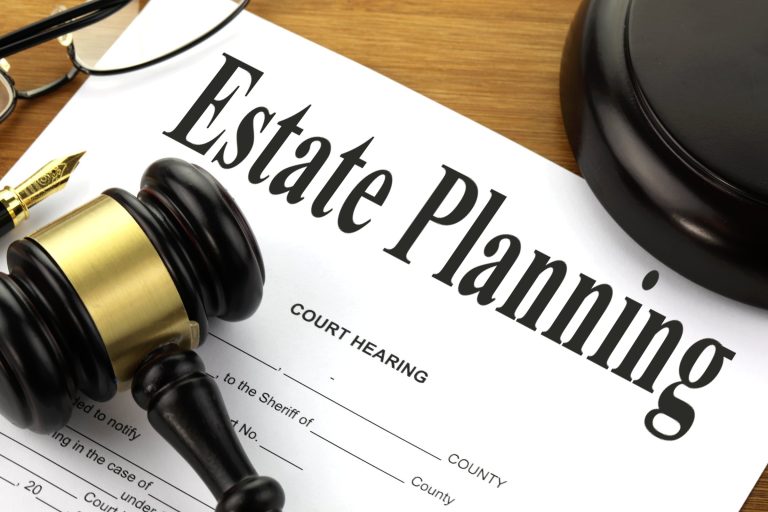Estate Planning: Making Sure Your Legacy is More Than Just Old Photo Albums
Table of Contents
Introduction
Ah, retirement! A time for relaxation, rediscovery, and… estate planning? Indeed, as you step into this golden chapter, ensuring your legacy is in order is paramount.
And no, we’re not just talking about who gets your collection of vintage stamps or that secret family recipe. Let’s dive into the nitty-gritty of estate planning, with a sprinkle of humor and a dash of wisdom.
1. The Basics of Estate Planning
Estate planning isn’t just about divvying up your assets; it’s about ensuring your loved ones are taken care of and your wishes are respected.
Think of it as your final love letter to your family. And remember, it’s like planning a party you won’t attend, but at least you get to decide who gets the biggest piece of cake!
2. Wills: Your Personal Letter to the Future
A will is more than just a piece of paper; it’s your voice from beyond. It details how you want your assets distributed and ensures your wishes are respected.
But crafting a will isn’t just about deciding who gets what. It’s about reducing potential legal complications and ensuring a smoother transition for your loved ones.
After all, you wouldn’t want them squabbling over that antique clock, would you?
3. Trusts: Not Just for the Ultra-Rich
Trusts aren’t just for movie moguls and tech billionaires. They’re versatile tools that can protect assets, provide for minors or special needs family members, and even offer tax benefits.
From revocable trusts to irrevocable ones, there’s a trust for every need. And the best part? They can be tailored to your unique situation, ensuring your assets are managed just the way you want.
4. Inheritance: Passing Down More Than Just Grandma’s China
Inheritance isn’t just about material possessions. It’s about passing down memories, values, and yes, a bit of cash too.
But it’s essential to understand the nuances of inheritance, from tax implications to fair asset distribution.
And remember, it’s not just about who gets the family heirlooms but ensuring there’s no family feud over them!
5. Navigating the Probate Process
Probate might sound like a tropical fruit, but trust us, it’s a bit harder to digest. It’s the legal process of validating a will and distributing assets.
While it can be a tad complex, understanding the steps involved and potential challenges can simplify the process for your loved ones.
After all, you’d want them to remember you fondly, not for the legal maze you left behind.
6. The Digital Age of Estate Planning
Gone are the days of dusty ledgers and ink-quill pens. Today, technology has revolutionized estate planning, making it more accessible and user-friendly.
And speaking of the digital age, ever thought of sharing your estate planning journey on a blog?
With AI advancements in 2023, blogging isn’t just enlightening but potentially lucrative!
Conclusion
Estate planning might seem daunting, but it’s your chance to ensure your legacy is remembered just the way you want. So, take the reins, plan wisely, and let your treasures – both material and sentimental – find the right homes.
After all, retirement is about enjoying the present while ensuring the future is in good hands.
Frequently Asked Questions
What’s the difference between a will and a living will?
Great question! A will dictates how your assets will be distributed after your death.
A living will, on the other hand, outlines your wishes for medical care if you become unable to communicate decisions while still alive.
Think of it as your voice when you might not have one.
Can I just write my will on a piece of paper and have it be legally binding?
Technically, this is called a “holographic will.” While it can be legal in some states if entirely in your handwriting and dated, it’s always best to have a formal, witnessed document to avoid potential legal disputes.
How often should I update my will?
Ideally, review your will every 3-5 years or after significant life events like marriages, divorces, births, or deaths.
It’s like updating your wardrobe – you want it to reflect your current style (or assets)!
What is a trust fund, and do I need one?
A trust fund is a legal entity holding assets for beneficiaries. It’s not just for the wealthy! Trusts can help manage assets, reduce taxes, and bypass probate.
Consider it if you have specific wishes about how and when your assets are distributed.
How can I avoid the probate process?
Probate can be lengthy and costly. To avoid it, consider joint ownership of assets, beneficiary designations on accounts, and setting up revocable living trusts.
It’s like taking the express lane in traffic!
What are the tax implications of inheritance?
Inheritance tax varies by state and the relationship between the inheritor and deceased. Some states tax inheritances, while others don’t.
Always consult with a tax professional to understand potential liabilities.
I’ve heard about “power of attorney.” What is it?
Can I leave assets to a charity in my will?
Absolutely! Many people choose to leave a legacy by supporting causes close to their hearts. Plus, it can offer tax benefits for your estate.
What happens if I die without a will?
This situation is called “dying intestate.” State laws will dictate how your assets are distributed, which might not align with your wishes. It’s like letting someone else decide the ending to your story.
How do digital assets fit into estate planning?
Digital assets like social media accounts, digital photos, and online bank accounts should be considered in your estate plan.
Ensure you provide access details and instructions on how they should be managed or distributed.
I’m considering starting a blog about my estate planning journey. Any tips?
That’s a brilliant idea! Share personal stories, insights, and lessons learned. With AI tools in 2023, blogging is not just a way to share but also a potential income stream.
Remember, your experiences can guide and inspire others on their journey.
Can I change my will after it’s been created?
Absolutely! Life’s a rollercoaster, and your will should adapt to its twists and turns. Regularly review and update it to reflect your current wishes.
What happens if I don’t have a will when I pass away?
Your assets will be distributed based on state laws, which might not align with your wishes. It’s like letting someone else choose the playlist for your party.
How can I ensure my special needs child is taken care of after I’m gone?
A special needs trust can be a game-changer. It ensures they’re provided for without jeopardizing their eligibility for certain benefits.
Are there online tools to help with estate planning?
Plenty! From online will generators to digital vaults for storing important documents, the internet is teeming with resources. But always consult with a professional for a tailored approach.







